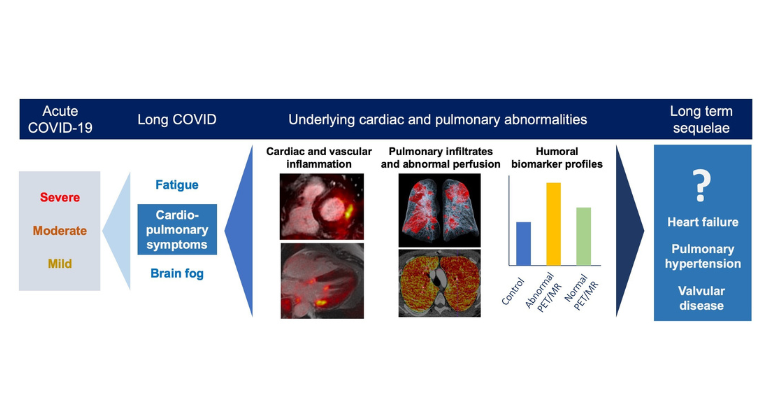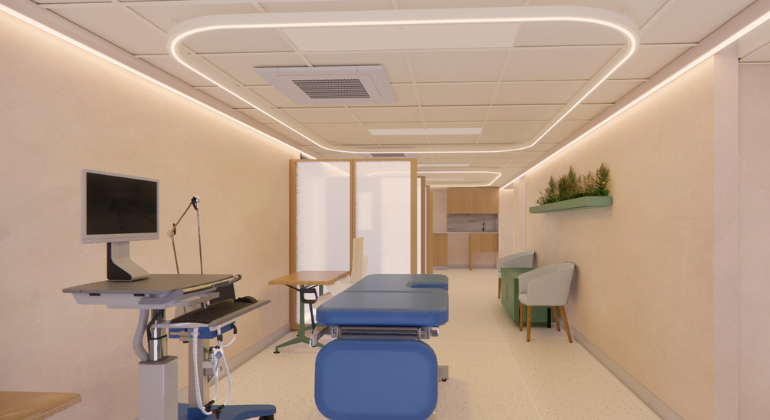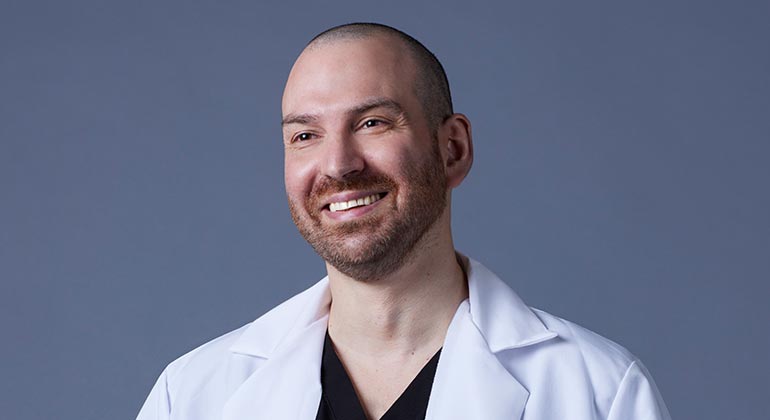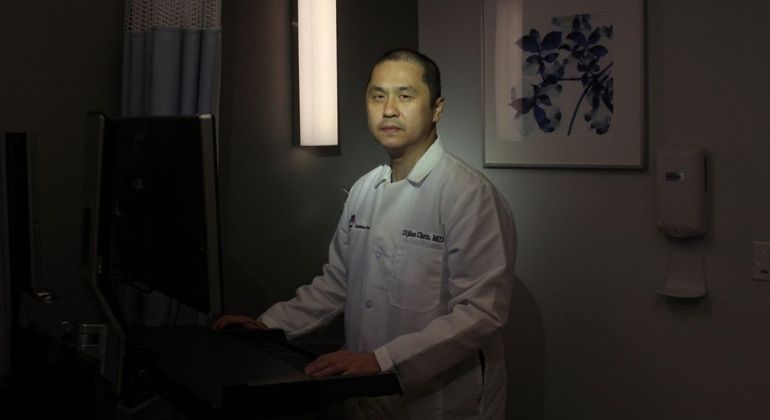Mount Sinai Creates First Manual for Treating Infection-Associated Chronic Illness for Clinicians
Free resource aims to improve diagnosis and care for patients living with long COVID and other complex chronic illnesses
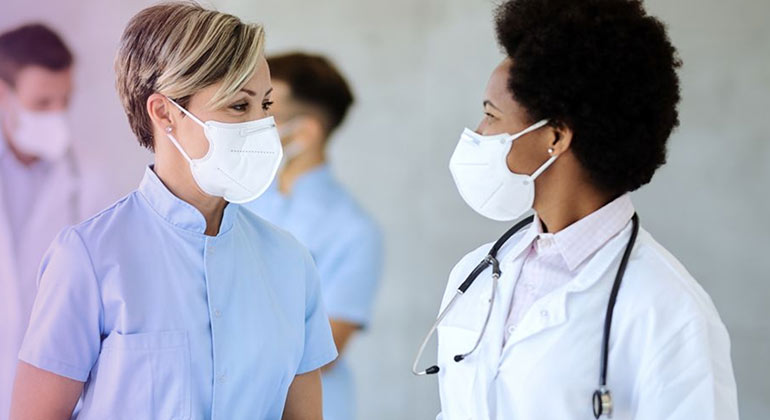
Mount Sinai has launched the country’s first clinical manual for treating infection-associated chronic illnesses (IACIs). This comprehensive guide, prepared by the Cohen Center for Recovery From Complex Chronic Illnesses, part of the Department of Rehabilitation and Human Performance, will help clinicians across the world better diagnose and care for patients with conditions such as long COVID, long Lyme disease/Lyme+, myalgic encephalomyelitis/chronic fatigue syndrome (ME/CFS), Ehlers-Danlos syndrome, and others.
“400 million people around the world have experienced long COVID, not to mention the millions of people living with ME/CFS, chronic tick- and vector-borne illness, and other IACIs—and more people are getting sick every day,” says David Putrino, PhD, the Nash Family Director of the Cohen Center. “Our clinic can only take on around 700 new patients a year, so clearly there’s a huge discrepancy there. Releasing this manual is a way for us not only to continue setting the standard of care, but also to help ensure that any clinician can have the tools and knowledge they need in order to adopt our practices and provide high-quality, evidence-informed practice for people with IACIs all over the world.”
The Cohen Center, launched in 2024, is a national leader in providing innovative clinical care for patients with these conditions. It leads clinical trials for promising new therapies for infection-associated complex chronic illness. Its research programs focus on understanding and highlighting the key similarities and differences among people living with these illnesses to help clinicians and researchers develop and test novel therapies for them.
The new manual covers extensive learnings from the Cohen Center. It walks providers through everything from diagnosis (in conditions with few or no definitive biomarkers) to long-term management strategies, multidisciplinary care models, and patient communication. The goal is to address knowledge gaps when dealing with these patient populations and help clinicians support patients.
Other highlights of the manual include sections on how to effectively care for common manifestations of IACIs such as brain fog, mast cell activation, and post-exertional malaise, as well as molecular-level understanding of the biophysical processes at work in patients’ bodies that may cause these different clinical presentations, providing a greater understanding of why certain symptoms may take place.
The manual details the infection prevention infrastructure that the Cohen Center uses, including HEPA filters and germicidal far-UV light technology. Hospitals and clinics across the United States can use this information to help minimize patients’ risk of contracting COVID-19 and other viruses during in-person clinical and research visits.
It also provides physical therapy guidelines for conditions such as Ehlers-Danlos syndrome, dysautonomia (a disorder that impacts the regulation of the body’s physiologic process including heart rate, blood pressure, and respiration), and craniocervical instability (a medical condition characterized by excessive movement between the skull and the upper cervical spine, due to weakened or damaged ligaments and connective tissues). The manual emphasizes the potential harm that incorrectly prescribed cardiovascular exercise can cause for patients who experience post-exertional malaise.
“Infection-associated chronic illnesses remain disabling, costly, and widely misunderstood across much of medicine. Recent research from our team shows that even a single well-designed educational intervention can dramatically increase clinicians’ confidence, preparedness, and empathy in managing these conditions,” says Raven Baxter, PhD, Director of Science Communication at the Cohen Center. “We hope to positively shift how the field understands and responds to infection-associated complex chronic illness and this manual is a proactive answer to calls for better training, less stigma, and more practical support for both new and experienced clinicians.”
The manual has been reviewed by more than a dozen experts both in the United States and internationally.
“The provider’s manual is a very useful tool for health practitioners caring for individuals with long COVID. It is the first step in standardizing care and is based on proven practices and successes. This will enable our long COVID community across the United States to access care that is much needed,” says Mouhanad Hammami, MD, MHSA, Director of the Santa Barbara County Health Department in California, which has been an early adopter of the educational program and helped thousands of California doctors to access training from the Center’s educational team.
The manual can be accessed free through the Cohen Center website and project leaders will provide free online resources and CME-accredited courses and events around the country.
To access the manual, click on this link below:
https://icahn.mssm.edu/research/cohen/resources
If you are a health care provider and would like to discuss courses or events in your area, please reach out to corescicomm@mountsinai.org.
About the Mount Sinai Health System
Mount Sinai Health System is one of the largest academic medical systems in the New York metro area, with 48,000 employees working across seven hospitals, more than 400 outpatient practices, more than 600 research and clinical labs, a school of nursing, and a leading school of medicine and graduate education. Mount Sinai advances health for all people, everywhere, by taking on the most complex health care challenges of our time—discovering and applying new scientific learning and knowledge; developing safer, more effective treatments; educating the next generation of medical leaders and innovators; and supporting local communities by delivering high-quality care to all who need it.
Through the integration of its hospitals, labs, and schools, Mount Sinai offers comprehensive health care solutions from birth through geriatrics, leveraging innovative approaches such as artificial intelligence and informatics while keeping patients’ medical and emotional needs at the center of all treatment. The Health System includes approximately 9,000 primary and specialty care physicians and 10 free-standing joint-venture centers throughout the five boroughs of New York City, Westchester, Long Island, and Florida. Hospitals within the System are consistently ranked by Newsweek’s® “The World’s Best Smart Hospitals, Best in State Hospitals, World Best Hospitals and Best Specialty Hospitals” and by U.S. News & World Report's® “Best Hospitals” and “Best Children’s Hospitals.” The Mount Sinai Hospital is on the U.S. News & World Report® “Best Hospitals” Honor Roll for 2025-2026.
For more information, visit https://www.mountsinai.org or find Mount Sinai on Facebook, Instagram, LinkedIn, X, and YouTube.
About the Mount Sinai Health System
Mount Sinai Health System is one of the largest academic medical systems in the New York metro area, with 48,000 employees working across seven hospitals, more than 400 outpatient practices, more than 600 research and clinical labs, a school of nursing, and a leading school of medicine and graduate education. Mount Sinai advances health for all people, everywhere, by taking on the most complex health care challenges of our time—discovering and applying new scientific learning and knowledge; developing safer, more effective treatments; educating the next generation of medical leaders and innovators; and supporting local communities by delivering high-quality care to all who need it.
Through the integration of its hospitals, labs, and schools, Mount Sinai offers comprehensive health care solutions from birth through geriatrics, leveraging innovative approaches such as artificial intelligence and informatics while keeping patients’ medical and emotional needs at the center of all treatment. The Health System includes approximately 9,000 primary and specialty care physicians and 10 free-standing joint-venture centers throughout the five boroughs of New York City, Westchester, Long Island, and Florida. Hospitals within the System are consistently ranked by Newsweek’s® “The World’s Best Smart Hospitals, Best in State Hospitals, World Best Hospitals and Best Specialty Hospitals” and by U.S. News & World Report's® “Best Hospitals” and “Best Children’s Hospitals.” The Mount Sinai Hospital is on the U.S. News & World Report® “Best Hospitals” Honor Roll for 2025-2026.
For more information, visit https://www.mountsinai.org or find Mount Sinai on Facebook, Instagram, LinkedIn, X, and YouTube.
Mount Sinai Uses Remote Patient Monitoring to Rapidly Respond to COVID-19
Apr 03, 2020 View All Press Releases